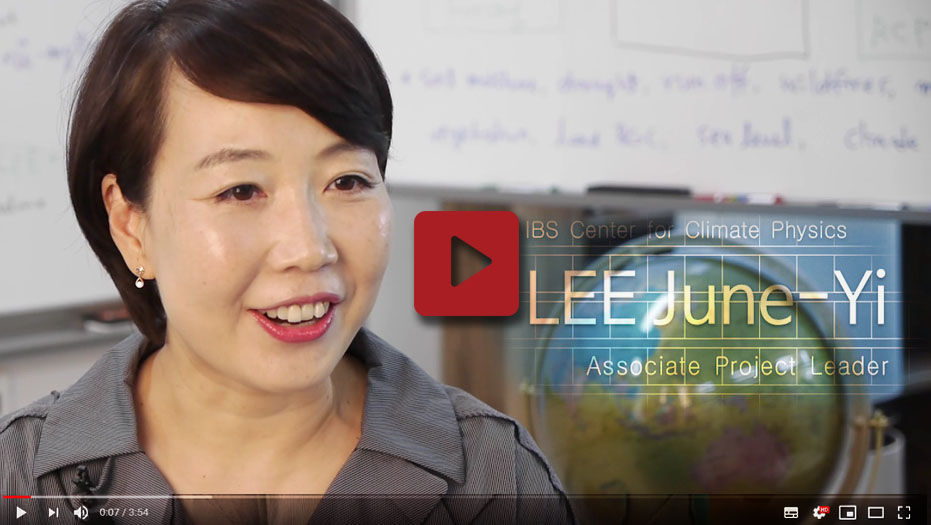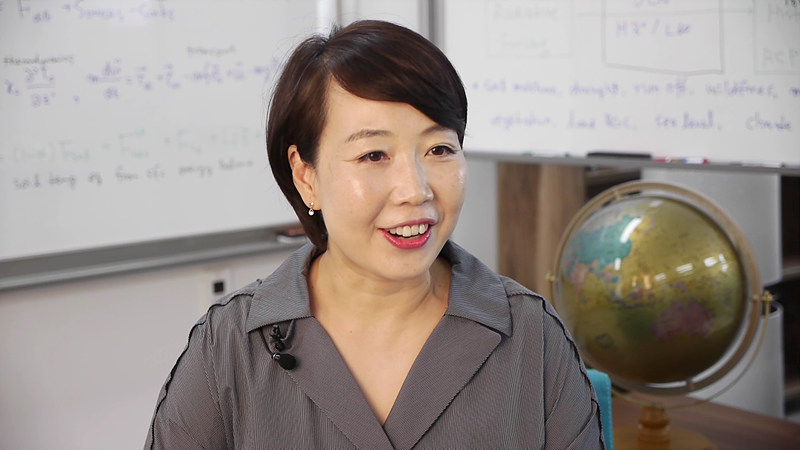주메뉴
- About IBS 연구원소개
-
Research Centers
연구단소개
- Research Outcomes
- Mathematics
- Physics
- Center for Theoretical Physics of the Universe(Particle Theory and Cosmology Group)
- Center for Theoretical Physics of the Universe(Cosmology, Gravity and Astroparticle Physics Group)
- Center for Exotic Nuclear Studies
- Center for Artificial Low Dimensional Electronic Systems
- Center for Underground Physics
- Center for Axion and Precision Physics Research
- Center for Theoretical Physics of Complex Systems
- Center for Quantum Nanoscience
- Center for Van der Waals Quantum Solids
- Chemistry
- Life Sciences
- Earth Science
- Interdisciplinary
- Institutes
- Korea Virus Research Institute
- News Center 뉴스 센터
- Career 인재초빙
- Living in Korea IBS School-UST
- IBS School 윤리경영


주메뉴
- About IBS
-
Research Centers
- Research Outcomes
- Mathematics
- Physics
- Center for Theoretical Physics of the Universe(Particle Theory and Cosmology Group)
- Center for Theoretical Physics of the Universe(Cosmology, Gravity and Astroparticle Physics Group)
- Center for Exotic Nuclear Studies
- Center for Artificial Low Dimensional Electronic Systems
- Center for Underground Physics
- Center for Axion and Precision Physics Research
- Center for Theoretical Physics of Complex Systems
- Center for Quantum Nanoscience
- Center for Van der Waals Quantum Solids
- Chemistry
- Life Sciences
- Earth Science
- Interdisciplinary
- Institutes
- Korea Virus Research Institute
- News Center
- Career
- Living in Korea
- IBS School
News Center
| Title | A Scientist on a Time Machine, Peeking into Past and Future Climate Change | ||||
|---|---|---|---|---|---|
| Name | Communications Team | Registration Date | 2018-12-11 | Hits | 5176 |
| att. |
 thumb.jpg
thumb.jpg
|
||||
A Scientist on a Time Machine, Peeking into Past and Future Climate ChangeLEE June-Yi, Associate Project Leader, IBS Center for Climate Physics A golden globe sits on the desk of Research Fellow LEE June-Yi of the IBS Center for Climate Physics (ICCP), who is also an assistant professor of Research Center for Climate Sciences, Pusan National University. When asked about the globe being golden rather than the usual colors, June-Yi replies, "It might send a message that the ocean is more important than gold to us." Our Mother Ocean is one of the key elements in the Earth climate system and the most important source for seasonal to decadal climate variability and predictability. Climate refers to the long-term statistics of the weather in a given place. ICCP's research spans the entire temporal range of Earth's climates. With the aid of Earth System Models which can be regarded as Climate Time Machines for climate scientists, June-Yi explores the traces of the Earth's past climate change and peeks into its future.
Pathway to NASAWhen June-Yi applied to the Earth Science major of Science Education, Ewha Womans University, she had a great interest in Astronomy rather than Atmospheric Sciences. "When I was young, I liked to observe stars and had a dream to work at NASA someday exploring the mystery of the universe", she says. However, she was really fascinated by classes on Atmospheric Sciences she took during her Bachelor course (especially Prof. Jung-Moon Yoo's classes) and then decided to further study on Climate Sciences. She recollects the time as an important turning point of her life. "If I look back my past, I'm amazed by the fact that Prof. Jung-Moon Yoo had a great influence on my life. I really hope that I can be the professor like him", she reflects. She studied climate predictability and prediction using atmosphere-ocean coupled climate models during her Master and Ph. D course at Seoul National University (SNU) with the academic advice of Prof. In-Sik Kang. After receiving her Ph. D degree, June-Yi moved to the National Aeronautic and Space Agency (NASA) Goddard Space Flight Center (GSFC) as a postdoctoral fellow. "Eventually, I had a chance to work at NASA as a climate scientist rather than an astronomer", she says.
From Hawaii to ICCP in BusanAfter her two-year postdoctoral experience at NASA, June-Yi had a chance to work at the International Pacific Research Center (IPRC) at the University of Hawaii as a research coordinator of the international climate models' intercomparison project supported by APEC Climate Center (APCC) in Busan as part of its international research collaboration. She worked with Prof. Bin Wang on subseasonal to seasonal climate predictions using climate models in operational and research centers over the Asia-Pacific region. "Hawaii is a great place for climate research as it is at the crossroads of the West and East. At IPRC in particular, experts in atmosphere and ocean sciences collaborate to understand the ocean-atmosphere coupled process across timescales. Working in Hawaii was a very good opportunity for me as I am keenly interested in climate predictability on intraseasonal and seasonal time scales," June-Yi says. In August 2013, June-Yi then moved her research base from Hawaii to Busan as an invited researcher in PNU under the Brainpool project supported by the Korean Federation of Science and Technology. In September 2015, she became an Assistant Professor of the Research Center for Climate Sciences at PNU. Busan city is home to the APEC Climate Center, a key player in seasonal climate outlook and June-Yi saw great potential for Busan to become a global hub for science collaborations in climate research. PNU was a natural choice for June-Yi as it already had name recognition with the world-leading climate scientists such as Prof. Kyung-Ja Ha and was working with IBS to host ICCP within their campus. June-Yi joined the ICCP as an associate project leader since it was established in the January 2017. Multi-year Prediction of Earth System ComponentsIn ICCP, June-Yi is mainly working on multi-year to decadal prediction of Earth System components such as total soil water, drought, wildfire, marine ecosystem, and statistics of extreme climate events in addition to long-term projection of future climate change by using Earth System Models (ESMs). The term 'projection' is referred to model-derived estimate of future climate under potential scenarios based on socio-economic and greenhouse gas emission pathways and the term 'prediction' is the most-likely projection obtained with initial condition "The Earth System Predictability team in ICCP focuses on seasonal to decadal climate variability and predictability on a global scale. As decadal climate prediction becomes a hot topic, a number of research institutions worldwide have been developing ESMs for near-term prediction and long-term projection of future climate. We are collaborating with Prof. Yoshimitsu Chikamoto's team in Utah State University, USA to develop multi-year prediction system based on National Center for Atmospheric Studies (NCAR) Community Earth System Model (CESM)." There is a fundamental prerequisite for climate prediction and projection. As the saying goes, "Study the past if you would define the future", predicting and projecting future climate draws on understanding past climates and variability. It is also critical to assess uncertainties and credibility of ESMs by comparing with paleoclimate proxy and observational data. "I often get asked whether we can predict the Earth's climate over several years or decades. In fact, climate prediction is a quite complex and demanding process. There are so many different climate processes across timescales. Beyond the physical processes that have been conventionally considered, the biological and chemical processes that feedback into the physics of climate should be understood and properly included in the model to make reliable predictions. Currently, we have not fully comprehended how the processes of all those elements effect the Earth system. Such complexity limits ESMs in its accuracy and different models produce disagreeing results. Thus, we use a multi-model ensemble approach for climate prediction and projection. For example, IPCC's Assessment Reports integrate the results from a large number of models. Though each model might have different projections, they are largely consistent in a context, enabling us to make a general prediction of the future climate." June-Yi and ICCP researchers aim to tackle big challenges in Climate Sciences with integrated and comprehensive approaches. "We still have more to explore, though our understanding of the Earth system has been greatly improved thanks to the advances in climate sciences and computer technologies. It requires a comprehensive approach to coordinate theoretical analyses, observations, and modellings," June-Yi notes. Taking the Lead for a Sustainable Earth"Climate Sciences require collaborations with other disciplines to find breakthroughs. While it has a huge impact on humanity, human activities are now forcings to the Earth's climate. How we respond to current climate issues may shape future climates. Climate scientists should play a more active role to make a sustainable society through collaborations and communications with those in other fields of natural sciences and humanities to address climate change and sustainable development issues," she emphasizes. June-Yi expects to have a turning point in her scientific journey with the new supercomputer facility set to be up and running at the IBS headquarters in Daejeon by the end of this year. The facility is expected to boost scientific research at multiple IBS Centers. "The new supercomputer will be a driving force for ICCP to conduct world-leading sciences. ICCP is to expand the frontiers of Earth system science by conducting cutting-edge research into climate dynamics, leveraging high-performance computer simulations," June-Yi says. June-Yi expresses her ambition to take the initiative in climate science, exploring uncharted territory, as well as addressing social issues. IBS is a place where she feels her vision can grow and ultimately be realized. She hopes to play a key role in making ICCP and Pusan National University leading research institutions in climate sciences. |
|||||
| Next | |
|---|---|
| before |
- Content Manager
- Public Relations Team : Suh, William Insang 042-878-8137
- Last Update 2023-11-28 14:20










 [Video on YouTube] LEE June-Yi, Associate Project Leader, IBS Center for Climate Physics
[Video on YouTube] LEE June-Yi, Associate Project Leader, IBS Center for Climate Physics

